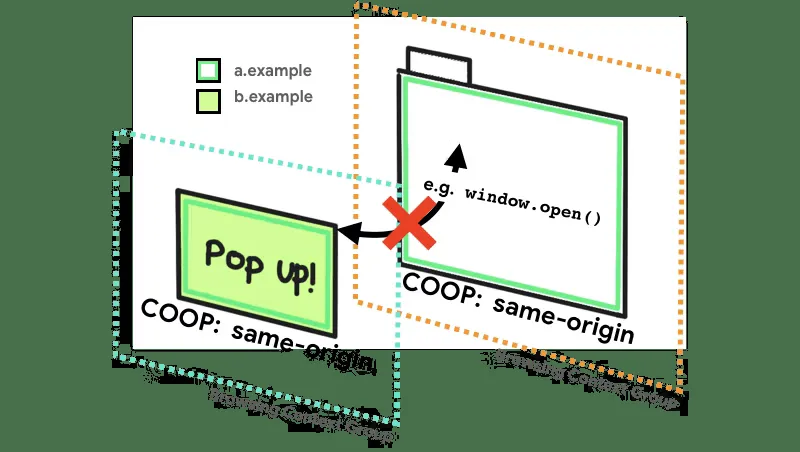In today’s interconnected digital world, web security is of paramount importance. Web developers and site owners continuously strive to protect their users from various threats and vulnerabilities. One critical aspect of web security is controlling how different web pages interact with each other across different origins. This is where Cross-Origin Opener Policy (COOP) comes into play. In this blog post, we will delve into what COOP is, its significance, and how it helps enhance web security.
What is Cross-Origin Opener Policy (COOP)?
Cross-Origin Opener Policy (COOP) is a security feature implemented in web browsers that allows web developers and website owners to define how a web page’s browsing context (i.e., a window or tab) interacts with other pages from different origins. COOP provides a set of directives to control the security posture of a browsing context, ensuring that it only interacts with trusted sources.
Why is COOP Important?
- Mitigating Cross-Origin Attacks: COOP is a fundamental tool in mitigating a variety of cross-origin security threats, including Cross-Site Scripting (XSS) and Cross-Site Request Forgery (CSRF). By specifying a COOP policy, developers can significantly reduce the risk of malicious code execution and unauthorized cross-origin interactions.
- Protecting User Privacy: COOP helps protect user privacy by restricting how web pages can access and manipulate the user’s data and other pages. This prevents malicious websites from accessing sensitive user information, such as cookies and session data.
- Preventing Information Leaks: COOP assists in preventing information leaks, such as Cross-Site Leaks (XS-Leaks), which can disclose sensitive information about the user’s browsing behavior. With COOP, developers can control which pages can access and share data, enhancing privacy and security.
How Does COOP Work?
COOP operates through HTTP headers, which are included in the server’s response to a web request. The COOP header informs the browser about the desired policy for the web page. Key components of COOP include:
- Cross-Origin-Opener-Policy (COOP): This header specifies the policy for the browsing context. It can have values like ‘same-origin’, ‘same-origin-allow-popups’, or ‘unsafe-none’, each with varying levels of strictness regarding cross-origin interactions.
- Cross-Origin-Embedder-Policy (COEP): COOP often works in conjunction with the Cross-Origin-Embedder-Policy (COEP) header. While COOP governs how a page interacts with other origins, COEP controls how resources from different origins are embedded within the page.
Conclusion
Cross-Origin Opener Policy (COOP) is an essential component of modern web security, enabling web developers and site owners to exert control over cross-origin interactions and protect users from a wide range of security threats and privacy invasions.
In an ever-evolving digital landscape, staying informed about and implementing security features like COOP is crucial. By incorporating COOP headers into web applications, developers can significantly enhance security and privacy, creating a safer and more secure online environment for all users. As web threats continue to evolve, COOP will remain an essential tool in the fight against cross-origin security vulnerabilities.

